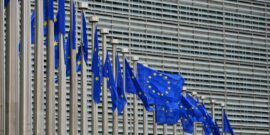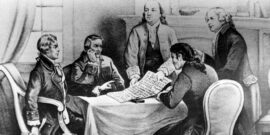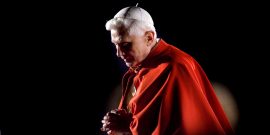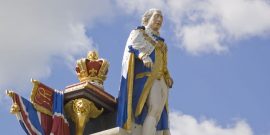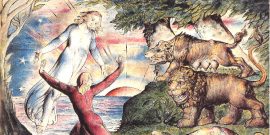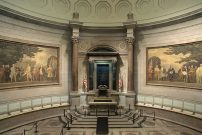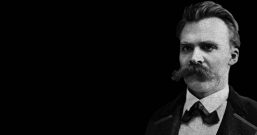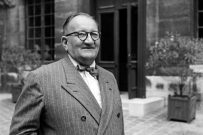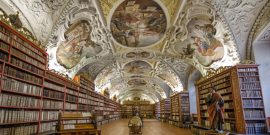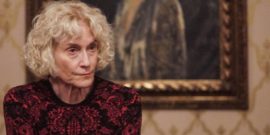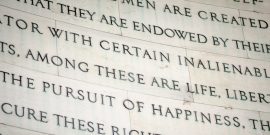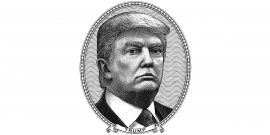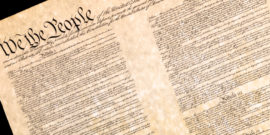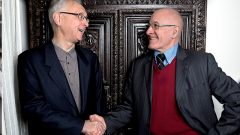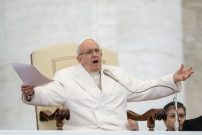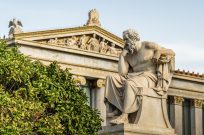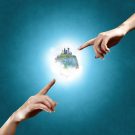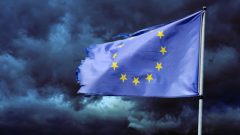Pierre Manent has identified the modern project's new religion, focused on the autonomous individual and a naturally harmonious "Humanity."
Paul Seaton
The problem started long before Covid-19.
The Founders displayed the power of man's rational nature, instead of merely asserting it.
Alasdair MacIntyre is a curious antiliberal Aristotelian.
Benedict always spoke of a “reason illumined by faith,” a dialogue that he believed characterized Europe at its best.
The American mind expressed in the Declaration is always on the lookout for "abuses and usurpations."
Fukuyama stayed too much within the parameters of modern thoughts and hopes, unwilling to step outside them to take their measure.
Vermeule aims to justify the administrative state with History and the Common Good.
The citizens of today's West have become anxious, alienated, and sterile. The balm we need can be found in our medieval past.
Thomas Paine served as a founding father of American free thought and secular humanism.
This treatment of sin lacks an inner logic or rationale, a guiding conception of what philosophy is and how it operates.
Bringing old gods to the new democratic city, Yves Simon shows how Catholic thought can defend democracy.
To commemorate the document fitly, one must take seriously its teachings.
The dual burden that Zarathustra has taken upon himself proves too much for one man, hence the tragic character of Nietzsche's parodic gospel.
Augustine is the opposite of the milquetoast versions of Christianity that are so much with us today. To a searching mind, he joined a fighting spirit.
The Metamorphoses of the City of God displays Gilson turning his attention to European issues through Augustine's City of God.
We’re increasingly getting more of the same from Pope Francis.
The life of the mind needs firm anchors lest it become unmoored from reason and prudence.
Nussbaum exhibits a clear desire to steer clear of Christianity’s contributions to our understanding of dignity.
The theology limned in the Declaration is very much a political theology, what one could call, in hindsight, fledgling America’s civil religion.
Can political philosophy help us think about Trump and contemporary America?
Opposing radical individualism, Lawler and Reinsch look to the unwritten constitution as the key to understanding how to form citizens in a democratic age.
If only Christian humanism can safeguard the best of paganism and of modernity in a way worthy of man, what must we learn from those that taught it?
The crisis demands answers to three questions: What did Francis know about McCarrick? When did he know? What did he do with that knowledge?
M.J.C. Vile's Constitutionalism and the Separation of Powers tells the story of a political tradition largely lost in the west.
On this July 4th, we should remember that the Declaration offers the outlines of a political morality suitable for all people, whatever their identity.
D.C. Schindler's Freedom from Reality makes the startling claim that John Locke and his modern inheritors offer a us demonic kind of liberty.
Peter Lawler laid out how the middle class was the class that best represented our middling status as human beings, neither gods nor beasts.
Prominent French thinkers Pierre Manent and Rémi Brague discuss religion, secularism, and the future of life in the West.
Pope Francis has succeeded in making a mess for his Church, especially in his understanding of its core teachings.
In times like these, critics of progress gain in relevance and interest: perhaps they’re on to something.
Reading Rousseau may help us sort out our love lives, but we have to think like the ancients to make good on his ideas.
Transnationalism is a concept that provides elites with both an empirical tool (a plausible analysis of what is) & an ideological framework.
John Fonte’s groundbreaking analysis of humanitarianism details its privileging of racial & gender categories & divisions.
Under a flashing neon sign proclaiming “human unity,” contemporary Europeans would have humanity arrest all intellectual or spiritual movement.
The Progressive attitude exemplifies Tocqueville’s twin-fears of democratic “pantheism”
Liberalism entered a decidedly different phase, where formal equality & equality of opportunity were to be replaced by real equality & measureable results.
The Resistance appears to have three fundamental objections to Trump: illegitimate, a threat, and not representative of them.
"The nation-state extended civic life, the condition of ‘living free’—which until then had been the privilege of only a small number."
Europe faces a widespread democratic illusion, an ersatz “religion of humanity” that violates both authentic religious faith and politics.
What is this distinctive form of life, human life, open to the pursuit of self-transcending, even self-forgetting knowledge and seeks a habitable home.
Paul Seaton is a professor of philosophy at St. Mary's Seminary and University and translator of Pierre Manent's The Religion of Humanity: The Illusion of Our Time (St. Augustine’s Press).
